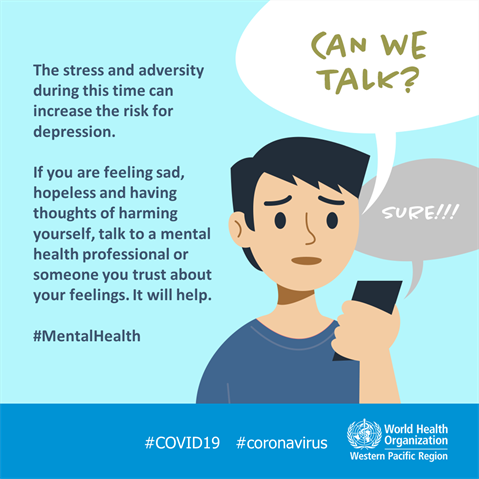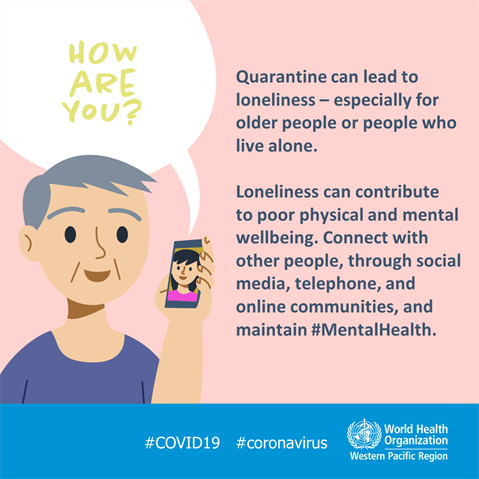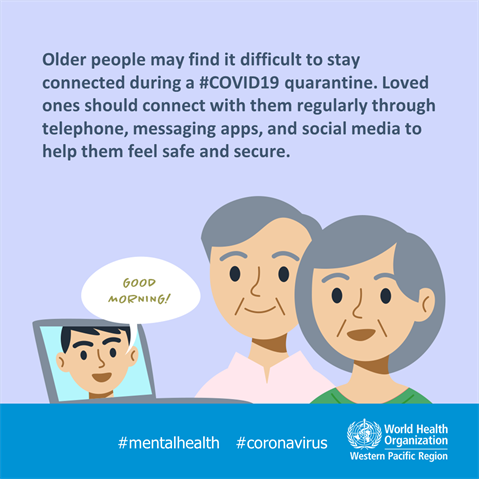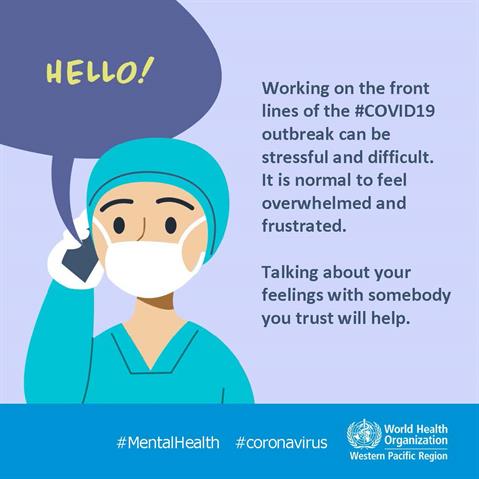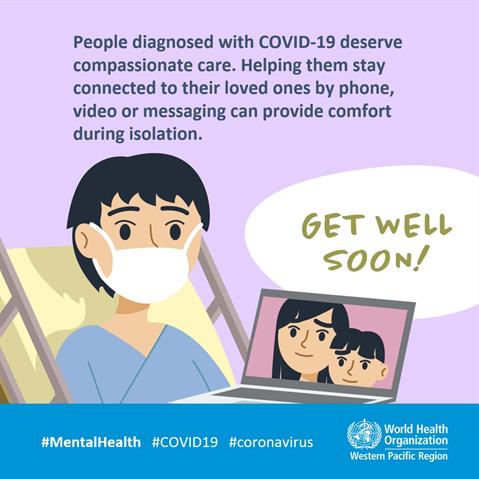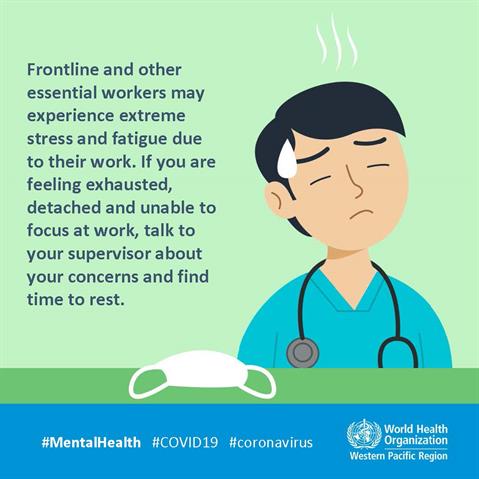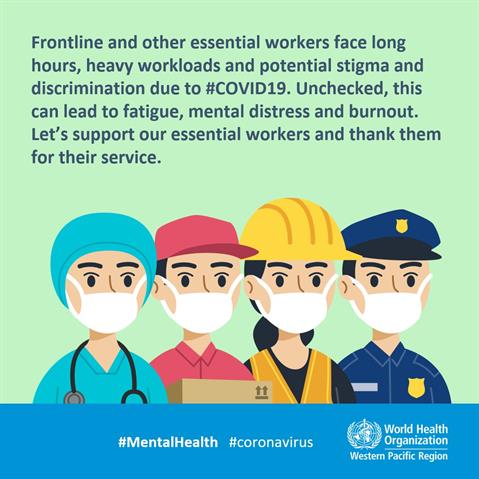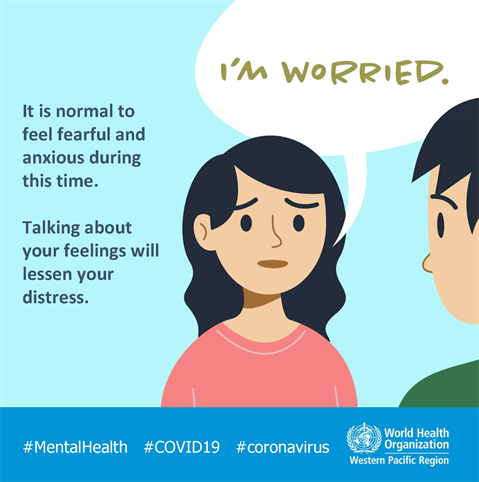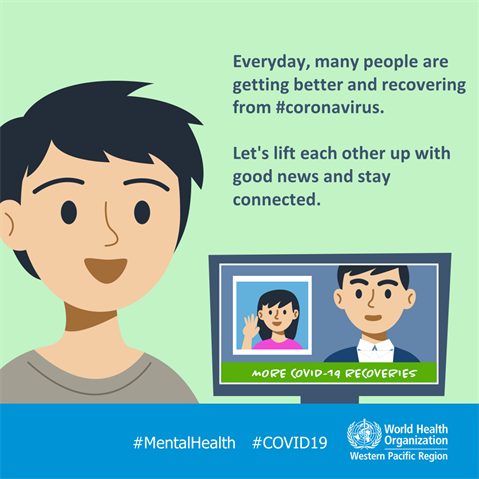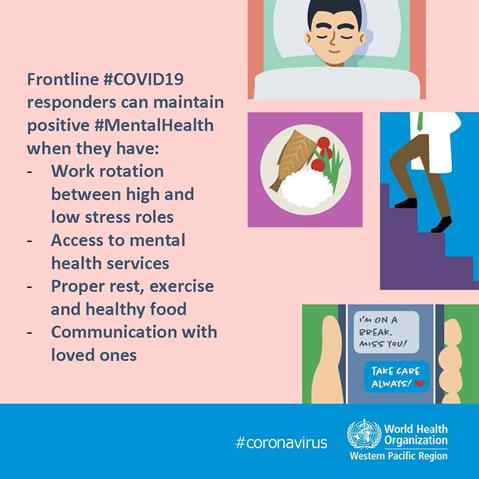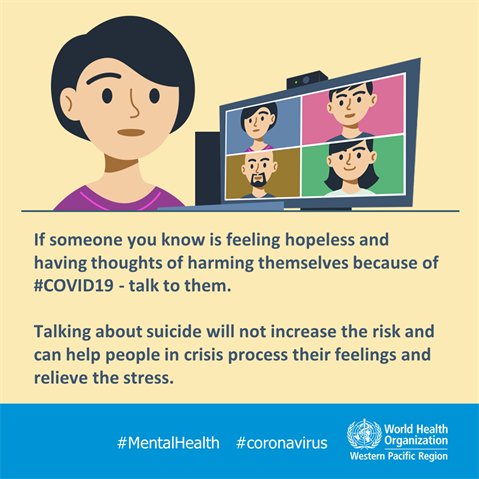Last updated: 08 September 2020
COVID-19 and mental health
It is normal to feel anxious and stressed during the COVID-19 outbreak.
We all have a role to play in protecting the physical and mental health of ourselves and others. Know the facts about COVID-19 and help to support positive mental well-being.
Infographics
The stress and adversity during this time can increase risk for depression.
Talk to a mental health professional or someone you trust about your feelings.
Quarantine can lead to loneliness - especially for older people or people who live alone.
Connect with other people through social media, telephone and online communities.
Older people may find it difficult to stay connected during the COVID-19 quarantine
Connect with them regularly through telephone, messaging apps and social media.
If you feel stressed and overwhelmed, talk to your colleagues or supervisor about your feelings and challenges.
Maintaining connections between people diagnosed with COVID-19 and their loved ones can help protect their mental health
The frontline responders working tirelessly to save lives during this pandemic deserve time to rest.
Talk to your colleagues or supervisor if you think you may be experiencing burnout.
Frontline #COVID19 responders and other essential workers face many challenges while they work to keep us safe and maintain services.
We support and thank them for their efforts.
It is normal to feel fearful and anxious during this time.
Talking about your feelings will lessen your distress.
Everyday, many people are getting better and recovering from coronavirus
Let’s keep our frontline and essential workforce mentally healthy and productive.
If someone you know is feeling hopeless and having thoughts of harming themselves because of COVID-19 - talk to them

